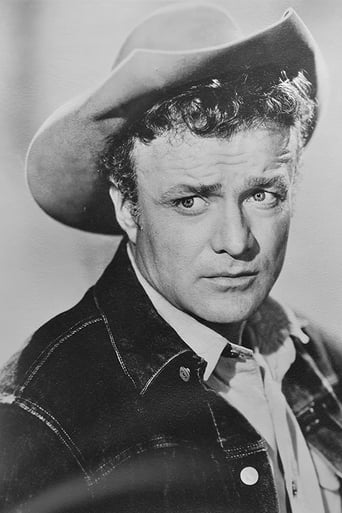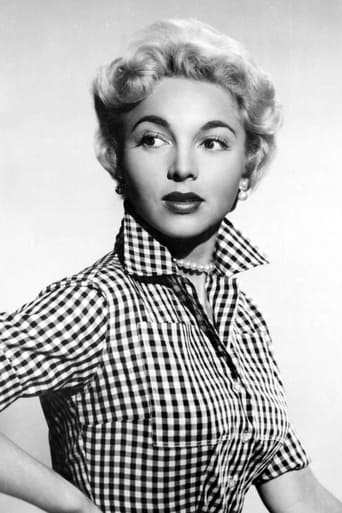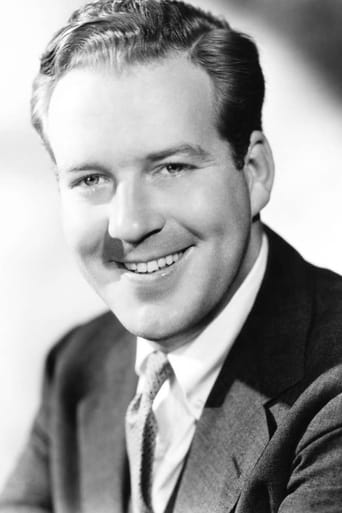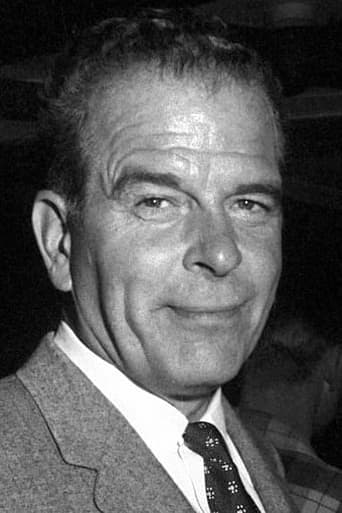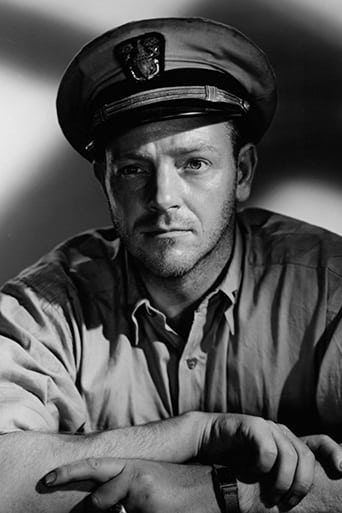Harockerce
What a beautiful movie!
Beystiman
It's fun, it's light, [but] it has a hard time when its tries to get heavy.
Benas Mcloughlin
Worth seeing just to witness how winsome it is.
Jerrie
It's a good bad... and worth a popcorn matinée. While it's easy to lament what could have been...
blanche-2
A cast of familiar faces appear in Chicago Confidential, a 1957 B movie. The stars are Brian Keith, Beverly Garland, Dick Foran, Elisha Cook Jr., John Hamilton, and Phyllis Coates. The latter two stars were in the TV "Superman" in case you don't recognize their names.The story is told with a narration, semidocumentary style. This type of film was popular for a time, but to me, it's very dry and too "Dragnet." A union accountant who has been keeping two sets of books calls DA Jim Fremont (Keith) and announces he is bringing in proof that the mob has infiltrated the union and is stealing from it. As could have been predicted as he starts walking to the DA's house in the dark, briefcase and folders in hand, he doesn't make it.The bad guys set up one of the good union guys, Artie Blaine (Foran) to take the fall for the murder, and they do a decent job of it, using a drunk (Elisha Cook, Jr.) who finds the murder weapon as a witness to go to the DA once they clean him up. Then they discredit Blaine's fiancée (Garland) on the witness stand. The noose tightens.Fairly formulaic, with a couple of interesting things - one is an impressionist, and the other is the use of a machine that recognizes speech patterns.I interviewed Beverly Garland some years ago, so I always try to watch her films. She was a vibrant, funny, wonderful lady with a million stories. It makes me sad that she's no longer with us, but at least we can enjoy her film and TV work. For me she's a bright spot in "Chicago Confidential."
David (Handlinghandel)
I'm really glad that crime movies of the B or lower grades are showing up. Hence the six stars. But this movie felt flat. It never drew me in.It's one of those in which an unseen narrator tells us about the crime that was sweeping big cities and the police/government officials/fill in the blank who were wiping it out.Brian Keith could be a fine noir hero but his performance feels uninspired. The movie boasts some great actresses of the tough-girl school. They too seem underused.The narration is almost a self-parody. It is so stern and humorless it presages the announcer on "Laugh-in" and some later intentional funny movies.I didn't buy this movie. Not sure why. But thanks for bringing it out of the vault, anyway. And keep 'em coming!
dougdoepke
The "Confidential" part was meant to piggy-back on the popular appeal of the lurid magazine of the same name, while the labor racketeering theme tied in with headline Congressional investigations of the day. However, despite the A-grade B-movie cast and some good script ideas, the movie plods along for some 73 minutes. It's a cheap-jack production all the way. What's needed to off-set the poor production values is some imagination, especially from uninspired director Sidney Salkow. A few daylight location shots, for example, would have helped relieve the succession of dreary studio sets. A stylish helmsman like Anthony Mann might have done something with the thick-ear material, but Salkow treats it as just another pay-day exercise. Too bad that Brian Keith's typical low-key style doesn't work here, coming across as merely wooden and lethargic. At the same time, cult figure Elisha Cook Jr. goes over the top as a wild-eyed drunk. Clearly, Salkow is no actor's director. But, you've got to hand it to that saucy little number Beverly Garland who treats her role with characteristic verve and dedication. Too bad, she wasn't in charge. My advice-- skip it, unless you're into ridiculous bar-girls who do nothing else but knock back whiskeys in typical strait-jacketed 50's fashion.
Robert J. Maxwell
There's nothing particularly original about this story of corrupt unions on one side and the "chief attorney" on the other. The stark but unimaginative lighting and photography stems from the fagged out noir cycle. The story could easily have been out of a Warner Brothers drawer with George Raft in the lead. The performances are routine, the direction flat, and even the set dressing perfunctory. (An alley is shown by a single plaster wall of simulated brick. It has one poster on it. The poster says, "Post No Bills.") We are introduced to the story and some of the characters by a portentous narrator who informs us that, while most unions work hard and honestly to advance the causes of their members, a few are corrupt. But we don't really get to know much about the unions or how they operate, although I suppose they were fair game after the success of "On the Waterfront" a few years earlier. Here they're just a peg to hang the tale on. The real ring leader is a disbarred lawyer who runs things through three or four thugs. The District Attorney (or whatever he is) finds out, like Dana Andrews did in "Boomerang," that the wrong man (Dick Foran) is charged with a murder and he spends the rest of the film almost alone, digging up evidence of Foran's innocence. He gets into fist fights and shoot outs like any inexpensive movie private eye.Brian Keith is the D.A. He's shown some insinuating displays of talent elsewhere, but here he spends most of the time speaking quietly and staring at the floor. Elisha Cook, Jr., is a likable rummy but can't do a good drunk. Beverley Garland is okay but is undermined by the direction, which has her gawking in a night club when she should be furtive. The remainder of the cast would be suitable for a TV series.And nobody is helped by the writing. When a "B girl" is about to be shipped by the union mob to the Filippines, someone advises her that she only has to learn a few words of Spanish. "I only know one word," she says, "Si. Yes." The writers have not trusted the audience to know that "si" in Spanish means "yes." The plot is clumsy and has holes in it. Keith visits a witness in her flat over a night club. He enters the door and has a gun shoved in his back by a yegg, but he outwits the heavy and knocks him out. Then the orders someone to call the police. The rest of the scene, played out at some length in the night club downstairs, forgets all about the police and they never show up, nor are they expected by anyone.It's nothing to be ashamed of, and some people might enjoy it, but there is similar stuff, better done, elsewhere.

